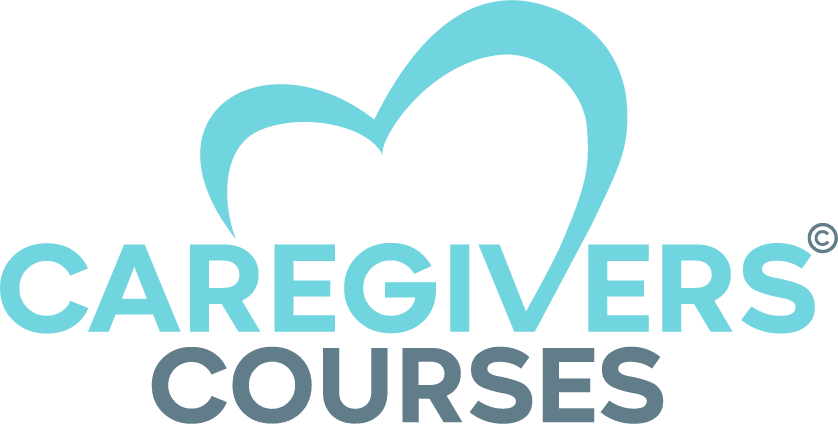One crucial question most people want to understand fully is who qualifies as a caregiver under Medicare rules. We occasionally require additional assistance with day-to-day tasks as we age. This support comes from carers for many senior Americans.
These people offer a broad range of services, including help with more complicated medical needs and assistance with daily tasks like eating and showering. Medicare facilitates older adults’ access to necessary medical care.
We will review the several requirements that caregivers must qualify for home health care under Medicare, ensuring that you and your loved ones can get the care you require as you age.
Who is Considered a Caregiver?
A caregiver is a person who helps and supports an older adult or someone who is temporarily or permanently ill, disabled, or fragile. Medicare beneficiaries who qualify for this care might pay a professional to give it to them. A friend or relative who provides this care freely can likewise be considered a caregiver.
Typically, Medicare cover caregivers at home, which entails routine tasks like grocery shopping, housework, transportation, and cooking. Patients with limited support networks may occasionally engage outside caregivers to meet comparable needs and offer companionship and emotional support.
What is Medicare?
Most beneficiaries of Medicare, a government assistance for family caregivers health program, are Americans 65 years of age and older. Certain medical expenses, such as hospital stays, doctor visits, and prescription medication expenditures, must be paid for this program to function.
Medicare is one of the most important components of American healthcare as it is financed by taxes that companies and people pay during their working years. Medicare may also be available to individuals under 65 if they have end-stage renal illness or specific disabilities. Furthermore, Medicare cover caregivers for dementia patients as evident in the program.
Who Qualifies as a Caregiver Under Medicare Rules?
Medicare does not cover conventional caregiving, defined as helping a person with daily tasks such as eating, dressing, bathing, getting dressed, moving from one room to another, and using the lavatory.
Additionally, a Medicare-certified home health service must administer the home health care. In this case, caregivers who are not Medicare-certified are not eligible. The following categories of people are eligible for working as a caregiver under Medicare rules.
- Occupational therapists
- Physical therapists
- Skilled nursing care providers
- Speech-language pathologists
While helping an older adult with daily tasks is not the primary responsibility of a professional nursing provider, it is nonetheless possible. Medicare only pays for competent nursing when it is required by medicine.

Requirements to Qualify as a Caregiver Under Medicare Rules
If you think you can handle the rigors of being a caregiver under Medicare regulations, you must fulfill a few requirements. Although caring for others can be tough, if you have perseverance and dedication, meeting the requirements can be quite easy.
Anyone who wants to be a caregiver under Medicare rules must follow certain guidelines and requirements. When choosing a caregiver or thinking about becoming one, it is important to comprehend these requirements. Medicare pay for family caregivers in NJ might differ from another state, but the following conditions must be satisfied for a caregiver to be eligible for Medicare benefits:
Home Health Aides Certification
Healthcare workers known as “home health aides” visit patients in their homes to offer non-medical care and help with everyday tasks. Anatomy, physiology, healthcare, and infection control are all covered in the certification programs for home health aides.
Receiving certification upon completion of the family caregiver program ensures that you possess the information and abilities to deliver patient care safely and efficiently. Additionally, it reassures families that you possess the necessary caregiver training and qualifications to meet the medical demands of your patients.
It should be noted that certification is optional for all caretakers. Certification is crucial if you want to offer services that qualify for Medicare. Thus, you cannot offer home health aide activities without the required accreditation and bill Medicare for them.
Excellent Communication Skills

Excellent communication is the basic principles of caregiving. Two-way communication is necessary. Communicating with your patient is essential to understanding their requirements and preferences. To communicate effectively, one must actively listen to others and comprehend their needs and worries. It is important to observe your patient’s nonverbal signs in addition to what they say.
A caregiver must communicate details regarding the patient’s condition, medications, and daily schedule to ensure everything is noticed. By using the same language as the other caregivers, you can guarantee that the patient receives consistent and uninterrupted care as specified for anyone who qualifies as a caregiver under Medicare rules.
Maintaining Records and Documentation
Maintaining a thorough record of your patient’s condition and care requirements is one of your primary duties as a caregiver. This includes recording any changes in their health, when they take their medications, when they see the doctor and any other pertinent information. In addition to keeping everything organized, thorough notetaking will enable you to provide the client’s medical team with the most up-to-date information.
Keeping thorough records is essential to providing your client with the greatest care, even though it may sometimes seem tedious. Accurate records can be an invaluable resource for the medical staff attending to your patient.
A Discipline in Medication Administration
Caregivers must have the skills and knowledge necessary to dispense medication. It takes more than just familiarity with needles and medications. You must be careful about following prescription regimens and understanding appropriate dosages.
You need to know the appropriate safety precautions when giving medication and when not to. An attendant need to be familiar with the many kinds of medication that the patient needs, such as inhalers and insulin injectors. And it’s essential to know how to use each one correctly.
Steps to Get Medicare Caregiver
Using caregiver services and having Medicare paid for them is feasible, but specific steps are involved. You can only use your coverage if you take the proper actions or if your health situation fits the mold. This briefly explains how to be eligible for Medicare caregiver benefits.
Step 1: Possess a Health Issue That Needs a Care

To put it, if the care you receive is not medically required, a caregiver cannot cover you. For a caregiver’s services to be reimbursed, your doctor must determine that they are medically required for your condition. Your healthcare physician will create a customized plan highlighting the importance of caregiving for your medical requirements once it is determined to be essential.
Step 2: Locate Services for Caregivers Taking Medicare
The next step involves locating a medical service from a licensed provider that Medicare covers. Since most healthcare providers are involved, this shouldn’t be too difficult, but it is still important to remember that Medicare won’t pay for your costs. If you have a Medicare Advantage plan, confirm that the facility of your choice is included.
Step 3: Hire a qualified Caregiver
To prevent shady players, research and ensure that the caregivers you employ abide by Medicare and your state’s requirements. In addition, ensure the facility has people who qualifies as a caregiver under Medicare rules.
Does Medicare cover family caregivers?
The program will assist with some of the cost of a caregiver’s services, and they are eligible for Medicare’s home health benefits. But it does not cover services from individuals; it will only cover Medicare-approved agencies. Caregiving services must be required by medicine. Medicare pay for family caregivers in NY as long as the beneficiary must be certified by a doctor or other healthcare professional as homebound. A plan of care must be established and followed by the physician.
What Is Not Covered by Medicare?
Medicare does not cover the cost of some home health services. Meal delivery (though some Medicare Advantage plans may cover this), homemaker services, 24-hour home care, and custodial care are some examples of these services.
Medicare does not pay for these services even though they might be vital for some people since they are not deemed medically necessary. Medicare beneficiaries should be aware of the services that are and are not covered by their plan to budget and plan for any out-of-pocket costs.
Conclusion
Knowing criteria for medicare-approved caregivers can be helpful for those needing help from a hired caregiver or a loved one. As we have covered, Medicare has guidelines about who is eligible for home health care and who can offer it. Nevertheless, you can get Medicare to pay for caregiver, but Medicare is not the only insurance option available to people; in fact, enrolling in a home health insurance coverage can be a smart choice to ensure that all your medical and caring needs are covered.


![Self-Care for Caregivers [Tips from Experts]](https://caregivercourses.net/wp-content/uploads/2024/07/Self-Care-for-Caregivers-Tips-from-Experts-300x169.jpg)

